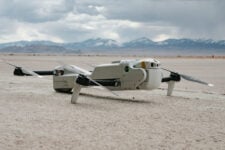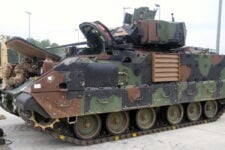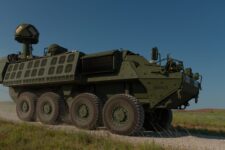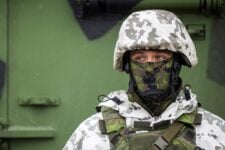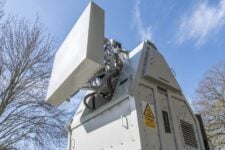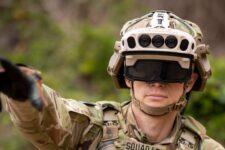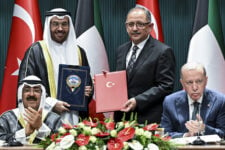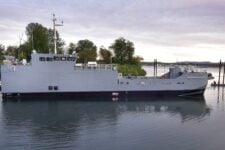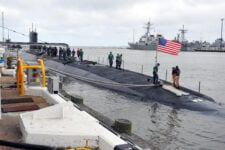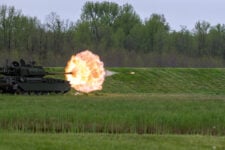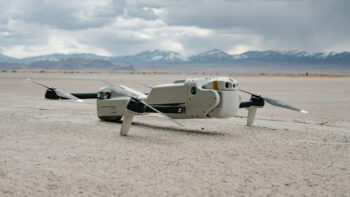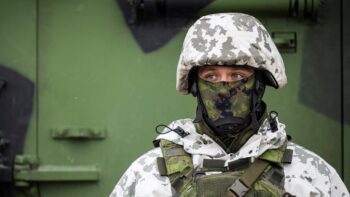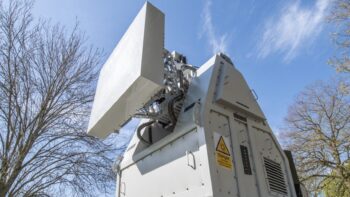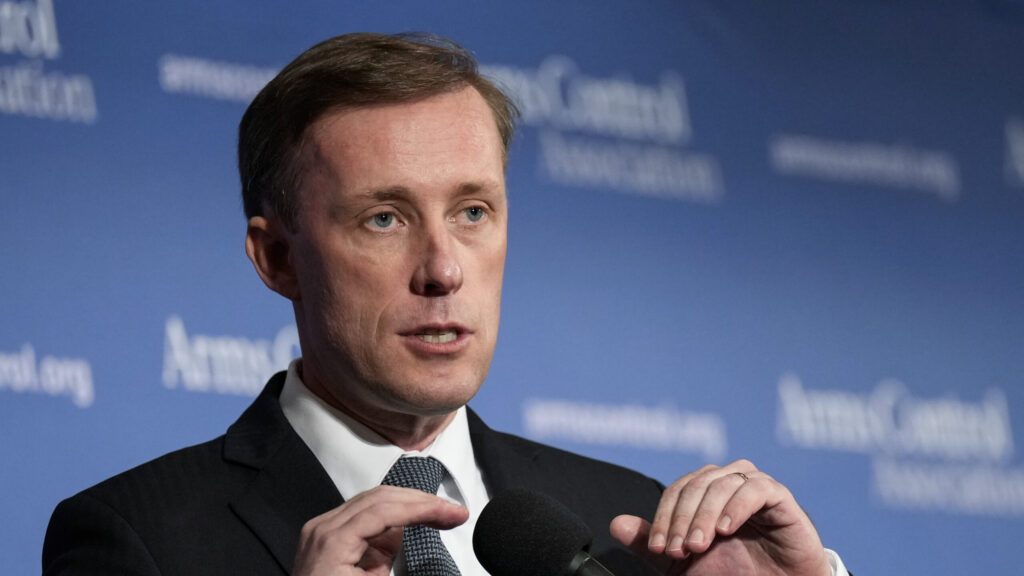
White House National Security Advisor Jake Sullivan speaks at the National Press Club on June 2, 2023 in Washington, DC. (Photo by Drew Angerer/Getty Images)
SYDNEY — White House national security advisor Jake Sullivan said he “made no bones about” China’s sales of heavy trucks and other defense industrial base gear to Russia in his meetings with the Chinese foreign minister last week.
Sullivan said Tuesday that the US had not observed a provision of any lethal aid from Beijing to Moscow, but said the US had “seen support from Chinese companies to help Russia reconstitute its defense industrial base.”
“We have been clear and direct about our concerns,” Sullivan said. “And I noted in my remarks that, as we’ve watched this happen, we’re prepared to take steps to respond to that kind of activity because we believe that Russia’s defense industrial base is basically building up to continue to support an imperial war of conquest in Europe. And that’s a fundamental national security interest of the United States.”
He did stress that the warning was not “directed” at Beijing alone and that the US may respond to any country providing industrial base support to Moscow, including through new tools from a recently signed executive order.
Sullivan met with Chinese Foreign Minister Wang Yi in Bangkok from Jan. 26 to 27, a meeting that was “part of the effort to maintain open lines of communication and responsibly manage competition in the relationship as directed by the leaders,” according to a White House description.
Discussion of the diplomatic shot across the bow Tuesday was part of a tour de horizon in Sullivan’s speech at an event sponsored by the Council on Foreign Relations in Washington, defending the Biden administration’s China policies.
He noted the creation of a U.S.-China Counternarcotics Working Group that had its first meeting Tuesday in Beijing, the resumption of military-to-military contacts, and China’s agreement to discuss guidelines for artificial intelligence as proof.
“Critics said at the time that this travel was one-sided — but our strategy was to use those meetings to open up a two-way flow of exchanges, and that’s exactly what happened,” Sullivan said. Key to this was getting Biden and Xi Jinping to talk regularly, followed by meetings of senior officials, he added.
RELATED: Biden launches AI ‘risk and safety’ talks with China. Is nuclear C2 a likely focus?
In the Indo-Pacific, Sullivan said the Biden administration has “tried to strengthen our ties with Indo-Pacific allies and partners in ways that would have been unlikely even inconceivable a few years ago. We launched AUKUS, we elevated the Quad, we upgraded our relationships with Vietnam, the Philippines, India, Indonesia and others,” he offered. “We launched a historic trilateral with Japan and the Republic of Korea that culminated in a historic summit that President Biden hosted at Camp David. We held summits — multiple summits — with the leaders of the Pacific Islands, as well as with ASEAN.”
Overall, Sullivan said, the administration hopes “we can work with the PRC to deepen crisis communication mechanisms to reduce the risk of conflict. We’re ready to coordinate on climate health, security global macro economic stability, and new challenges like the risk posed by artificial intelligence will also talk to Beijing about challenging regional and global issues from the Red Sea to the Korean peninsula,” Sullivan said.
“Let me conclude by noting,” he said, “that none of this will be easy and there will be times of tension that’s inevitable in a competition like this. That is simply not going to resolve in a neat and decisive end state. And as I noted, one thing is certain there will be surprises along the way. We’ll keep working to manage the competition as we have over the last year.”

